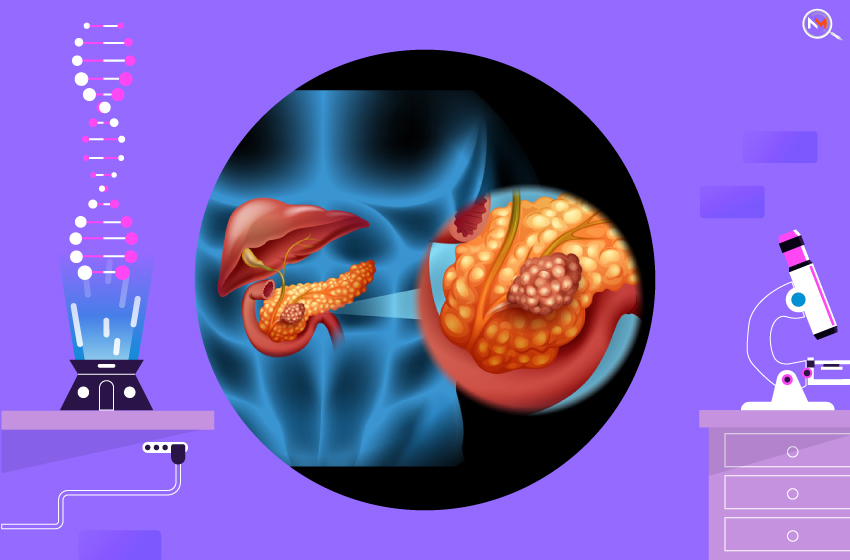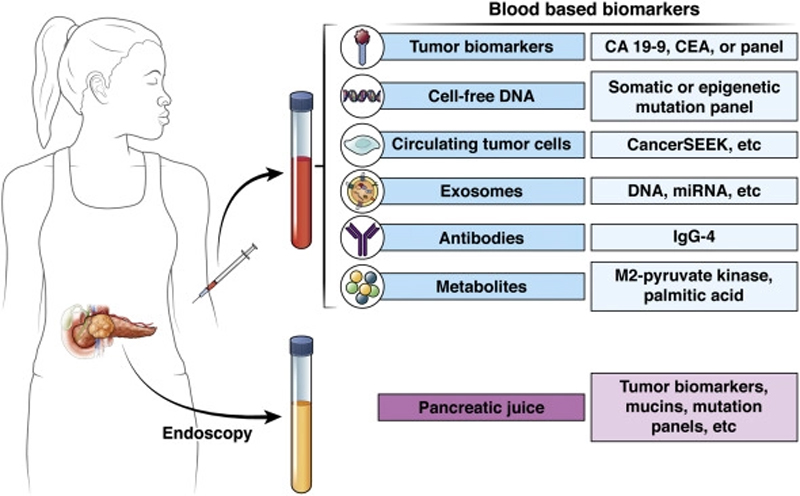
Pancreatic Cancer Is Hereditary Or Not? Is Genetic Testing Necessary?
- Health Lifestyle
 Alessia Braun
Alessia Braun- November 17, 2022
- 0
- 10 minutes read
Pancreatic cancer is a common and deadly cancer variant out there. However, the fact that not many know proper information about it remains intact. The American Cancer Society released its estimates for this year’s pancreatic cancer patients which stated that about 62,210 people alone in the U.S. would have been affected by it. Out of this, 32,970 were men, and 29,240 were women. Therefore, this disease is indeed common if not very common. In this article, we would be discussing whether pancreatic cancer is hereditary or not. Also, we would throw light upon the fact that genetic testing is required for the same or not.
Why Pancreatic Cancer Happens?
Cancer Research UK mentioned the definition of it and also noted why pancreatic cancer happens stating that:
“Pancreatic cancer is cancer that starts in the pancreas, a gland that produces digestive juices and hormones. The symptoms of pancreatic cancer include pain in the stomach area or back, yellowing of the skin or whites of your eyes (jaundice), and weight loss. Some lifestyle factors, inherited cancer syndromes, and certain medical conditions can increase the risk of pancreatic cancer.”
The above-mentioned definition notes the main reasons why pancreatic cancer happens. It also suggests that pancreatic cancer is hereditary sometimes. However, we would cover the concept in detail in the section just after this.
Pancreatic Cancer Is Hereditary Or Not?
The answer to whether pancreatic cancer is hereditary or not is a ‘yes’. However, not all pancreatic cancer cases are genetic in nature. But yes, in the past doctors have noticed that about 10% of the cases reported of this type of cancer are genetic in nature. This is due to the fact that gene mutations or abnormalities in one’s DNA can be acquired from family members.
These deformations might increase and cause serious problems that include pancreatic cancer as well. This might require genetic testing based on a lot of factors that have been noted later in the article. This is because of the reason that such tests help to answer the question of is pancreatic cancer hereditary or not for the concerned patient.
Pancreatic Cancer Is Curable: How True Is This Statement?
Whether pancreatic cancer is curable or not is a question that many people ask both those who are suffering and the ones who know such an affected person. Well, pancreatic cancer is curable to an extent. This is due to the fact that it is a serious disease and not everyone can be cured. Most of the time people are disappointed when they ask if their case is curable or not. About 10% of cases regarding this type of cancer are cured properly only if they are diagnosed in the early stages. The later it is identified, the chances of complete recovery lessen. Therefore, pancreatic cancer is curable only in ‘rare cases’.
Pancreatic Cancer And Genetic Testing
For discussing further pancreatic cancer and genetic testing we would first discuss the types of testing available and the areas they would be beneficial for. The diseases that would be ascertained by undertaking such tests will be mentioned as well. Also, we will be stating whether or not to choose these types of genetic tests and if yes, when is the right time to go for it.
1. Germline Testing

Germline testing is a type of genetic test that is done to identify whether a person has inherited genetic disorders or mutations that are related to pancreatic cancer. Thus, answering the query of whether ‘is pancreatic cancer hereditary’. These consist of mutations that affect genes like BRCA1 and BRCA2, MLH1, SH2, SH6, PMS2, and EPCAM, TP53, STK11, ATM, and PALB2. A host of these mutants might also be responsible for the possibility of other cancers that affect the breast or ovary.
A healthcare professional would advise such a testing to be done in case the patient has had family relatives that have suffered from cancer in the past. In this case, it is important that they have a direct blood relation with the concerned patient. The process of germline testing is very simple. The doctor would extract blood from the person’s body and send it to a laboratory for conducting genetic sequencing.
2. Somatic Testing

When somebody is diagnosed with pancreatic cancer, the healthcare professional might ask them to conduct a somatic or tumour testing. This is the testing that is done on a sample of a tumour. This test will aid in recognising if the cancer has any mutations in any particular genes, which might affect the way the body responds to treatment. This is due to the fact that such mutations might affect the process negatively as they might hinder the recovery process.
The process of this kind of genetic testing is not as easy or simple as of germline testing. The healthcare provider needs to obtain a sample of the pancreatic cancer and send it to a laboratory for testing. For this purpose, they might take the help of endoscopic surgery, which requires a small cut in the person’s abdomen. Then a small tube is to be inserted into the cut to acquire the desired samples. This type of testing might be more accurate to answer the doubt of is pancreatic cancer hereditary or not.
Efficacy Of Genetic Testing
Though technology today has advanced a lot even in the medical field, it is still not certain if a particular type of medical test would be completely accurate. This section has been included here to ascertain if pancreatic cancer and genetic testing are linked to each other effectively or not. It is noted that sometimes the results acquired from these genetic tests are not definite. Therefore, they are not capable of giving proper information about the genetic mutations and the kind of deformities in genes.
This might turn out to be extremely hazardous for those undergoing treatment as their recovery might be hampered. Moreover, false negative results are also a thing, though they are rare, they can easily affect someone’s life. This is because the doctor would never be able to make out the actual cause of problems during pancreatic cancer treatment, which in turn would impact the entire diagnosis.
In such cases, it is possible that the one diagnosing the concerned patient would refer them to a genetic counsellor for better understanding. The genetic counsellor in this situation would be able to help them in understanding the positive, negative, or neutral impacts of any genetic mutations that they have on the treatment. This would help when the pancreatic cancer is hereditary. This is why an accurate understanding of the results requires a genetic counsellor to intervene.
When To Get Genetic Testing Done?
Pancreatic cancer and genetic testing are very closely related depending on the situation and cause of the cancer (if gene mutations are concerned). In case one is diagnosed with pancreatic cancer, then he or she should ask their healthcare provider or a genetic counsellor whether or not genetic testing is to be conducted. The healthcare professional or genetic counsellor will advise them to do so in the following situations (as they might think pancreatic cancer is hereditary in this case):
- The patient has a persistent family history of pancreatic and other types of cancer.
- The diagnosed person has a blood relative who recently tested positive for genetic mutations that are linked with pancreatic cancer.
- If the team treating them identifies some changes that might be due to genetic mutations.
An Inherited Finishing!
Pancreatic cancer is hereditary in some cases. This might affect the person’s treatment if not identified in time. This is why genetic testing is recommended in cases where the healthcare professional thinks it to be necessary. Also, those who are thinking that pancreatic cancer is curable in all cases might be wrong. This is due to the fact that it is not curable in most situations as only with early diagnosis some patients were able to recover completely. Moreover, it is essential to consult a genetic counsellor for better understanding in case your healthcare professional comes to the conclusion that there are chances that your pancreatic cancer is hereditary.

